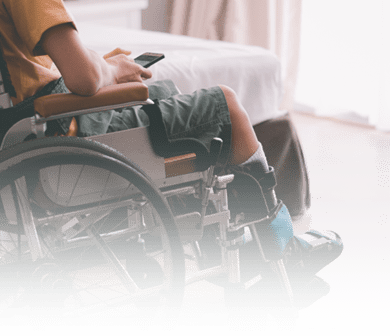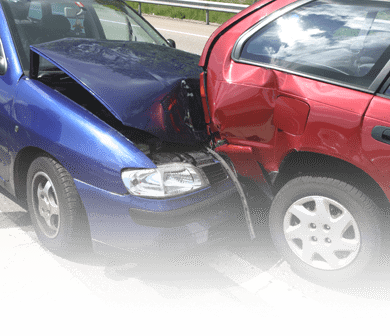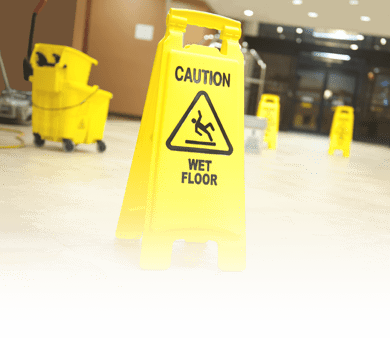You pay nothing until we win
You pay nothing until we win

A little less than half a million vehicles were leased in the US in 2023, a slight increase from 2022. This statistic proves leasing is still an immensely popular way to acquire a new vehicle.
However, leasing does have its fair share of challenges. For example, if you lease a car, you don’t own it; a third party, like a leasing company or dealership, owns the vehicle. This is not usually an issue unless you get into an accident.
If you’re reading this, you’ve likely gotten into an accident with your leased car and are unsure about what to do now. If that’s the case, you’ve come to the right place as the Andrew Law Firm team of Boise, Idaho attorneys have compiled this blog detailing what happens if you crash a leased car.
Much like a car accident with a non-leased car, your first step will be to get yourself to safety and determine if anyone else has been harmed. Regardless of whether anyone else has been hurt, you must call 911 and report the accident to the police.
Usually, 911 will send the police to the scene of the accident so that they can compile a police report surrounding what happened. Depending on whether you plan on filing a claim with an insurer or suing a liable party, you may or may not need access to this report.
You will also need to call the leasing company to report the accident since they are technically the legal owner of the vehicle you’ve leased.
After you’ve followed the accident process, you’ll need to decide if the vehicle’s damages are repairable. If there are, you can fix your car and keep the lease. You can also choose to cancel the lease with your insurance policy and gap insurance covering any losses.
In addition, you should note that if you choose to fix the car, your insurance should pay for any necessary repairs minus your deductible.
Unfortunately, if the car you’ve leased has been totaled, it’s a write-off. This means that it cannot be repaired. However, even though the car is a write-off, you’ll still be responsible for paying the leasing company what you owe on the car.
Generally, when a car is a total loss, your insurance should reimburse you for its current worth. You’ll only be able to end the lease if you pay the leasing company what you owe them. In many instances, what the insurance pays won’t be enough to cover the total cost of the car, so you will likely have to make arrangements to pay it off.
If you have gap coverage, they should pay the difference. Alternatively, you might be able to roll the amount owed into a new lease, but this will depend on the leasing company and your finances.
Now you know what to do if you’ve been involved in a car accident with a leased car. However, since filing an insurance claim and suing liable parties to recover compensation can be difficult, you might want to hire a Boise, Idaho, attorney.
Our attorneys at Andrew Injury Law have experience handling leased car accidents. We can help you determine whether your insurer, the insurer of an at-fault driver, or the driver themselves is responsible. Once liability is determined, we can help you with the next steps in your car accident claim, so contact us here.
A contingency fee is a type of payment arrangement that our Idaho personal injury firm uses. It is an agreement with our clients where our attorney’s fee is contingent upon the successful outcome of the case. In other words, we only receive payment if we win the case or secure a favorable settlement for you. That payment comes from your final settlement or award, so you never need funds from your own pocket to pay us.
Under a contingency fee agreement, Andrew Injury Law also typically covers all the upfront costs associated with your case, such as court fees, document preparation, expert witnesses, and investigation expenses. These costs are then recouped from the final settlement or judgment if the case is successful.
We use contingency fees to provide access to justice for those without the financial means to afford legal representation. It allows everyone to pursue a personal injury claim with the right legal help – and without worrying about the added cost.
Read more about contingency fees here.
Personal injury damages refer to the compensation you might be entitled to if you suffered harm due to the wrongful conduct of someone else. The law provides relief for such injuries in the form of monetary damages.
Damages can fall into different categories:
Economic damages – These compensate for financial losses you can prove with bills or receipts. They often include medical bills, lost income from missing work, out-of-pocket injury-related costs, future expenses and lost earnings, and more.
Noneconomic damages – Some losses are not tied to bills or expenses, but you still deserve compensation for them. Some intangible and noneconomic damages include pain and suffering, mental trauma, and permanent disabilities or disfigurement.
Punitive damages – These do not apply in every case. However, if the party that caused your injuries acted so egregiously that the court decides to impose additional liability, the court may award punitive damages to you up to a certain amount. These are not tied to your specific losses, but instead the conduct of the defendant.
Read More: Is Idaho a No-Fault State?
States set deadlines for taking legal action called statutes of limitations. Once the deadline passes, you cannot file a successful claim. In Idaho, the statute of limitations is two years from the date of the injury, and there are few exceptions to this time limit.
The purpose of a statute of limitations is to ensure that legal actions are initiated within a reasonable period after the injury occurs. It provides a degree of certainty and finality to potential legal disputes and helps ensure evidence is reliable and does not weaken over time.
However, the statute of limitations also means you need to act fast following a personal injury. There is much to do before filing a lawsuit, so always seek help from Andrew Injury Law as soon as you know you have injuries and suspect someone else was at fault.
Read more about the Idaho statute of limitations here.
Naturally, you want to know how much money you might expect for your injuries and losses. Settlements and awards can vary widely – ranging from a few thousand dollars to multi-millions. Unfortunately, there is no way to advise what your claim might be worth without fully evaluating your circumstances.
Some factors we consider when determining the value of your claim include:
The insurance company will undervalue your claim – but we never will. You can trust Andrew Injury Law to fight for the total compensation you need and deserve.
Read more about how a personal injury claim in Idaho is calculated here.
No matter how you look at it, car crashes can be traumatic experiences. However, it's a small comfort knowi...
The presumption that parking lot accidents always involve 50/50 liability between two drivers is outdated. ...
Idaho law strictly requires drivers to carry a minimum amount of auto insurance - specifically, liability c...

Accidental injuries cause over 24 million emergency room visits per year in the U.S., and many of these injuries are the fault of other parties.

Idaho reported more than 27,500 traffic crashes in a recent year, with over 12,600 people suffering injuries and 271 fatalities. We help car crash victims seek justice.

Commercial trucks are critical to Idaho’s economy, but they also put everyone at risk of serious collisions and injuries. We stand up to trucking companies.

Motorcyclists love the wide open spaces of Idaho, but other drivers are not always careful and can hit motorcycles, causing devastating injuries and losses.

After a fatal accident, families can face overwhelming emotional and financial losses. We can help your family seek financial support and justice for your loved one’s wrongful death.

Many accidents happen because property owners or businesses do not maintain their premises. If you slipped and fell or had another premises-related accident, we can help.

Whether you work in construction, logging, or in an office, injuries can happen. We assist injured workers in seeking maximum compensation for their injuries.

Getting the workers’ comp you deserve for a job-related illness or injury can be more challenging than you expect. Seek help with your claim from our legal team.
If you or a loved one has been seriously injured, please fill out the form below for your free consultation or call us at 208-517-7670
No Fees Unless We Win Your Case
